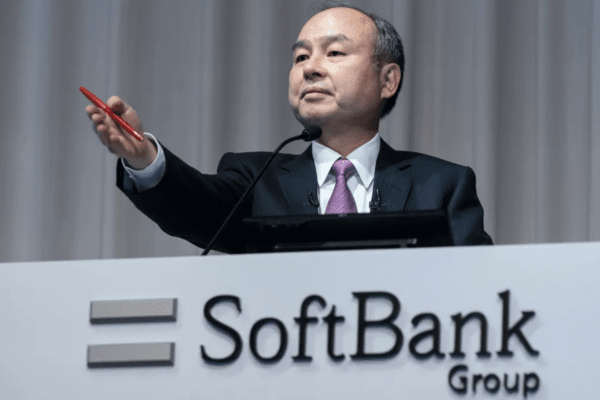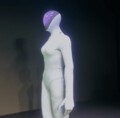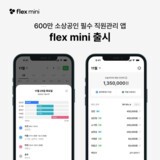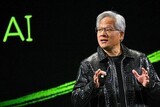
“AI Is Humanity’s Future”: Selling to Reload for the Next Leap
Masayoshi Son, Chairman of SoftBank, has once again drawn a “big picture.”
On November 11 (local time), Japan’s SoftBank Group announced it had sold its entire Nvidia stake — worth about $5.8 billion. On the same day, the company reported its earnings, showing a twofold jump in net profit (¥2.5 trillion) for the first time in two years. Yet the market’s focus was not on the numbers, but on Son’s next move.
SoftBank plans to invest up to $30 billion (₩43 trillion) in OpenAI, having already contributed $10.8 billion and pledging an additional $22.5 billion by January. In short, Son is betting everything on GPT over GPU — on brains rather than chips.
From Nvidia to OpenAI: Moving from Hardware to the “Mind” of AI
Son once called Nvidia the “oil company of the AI era.” But this time, he changed direction. SoftBank’s focus has shifted from AI infrastructure (hardware) to AI cognition (software).
The sale came as Nvidia’s stock hit record highs in October, allowing SoftBank to cash out while securing “ammunition” for what Son envisions as dominance in the AI ecosystem.
OpenAI’s recent transition from a non-profit to a for-profit entity opened the door for massive external investments — and SoftBank has positioned itself as one of the biggest beneficiaries of that structural shift.
The “Stargate Project”: Building a New Universe of AI Infrastructure
Son, along with OpenAI and Oracle, is spearheading the $500 billion “Stargate Project” — an ambitious plan to construct five mega data centers across the United States to establish control over the global AI infrastructure.
The Nvidia divestment is not merely a portfolio adjustment. It marks SoftBank’s transformation from being a buyer of GPUs to a builder of AI infrastructure.
Recent moves — such as the $5.4 billion acquisition of ABB’s robotics division and the expansion of ARM’s AI chip design business — fit neatly into this grand strategy.
“We Will Put SoftBank at the Center of AI”: Son’s Long-Term Vision
Son has previously admitted that selling Nvidia too early cost him a potential $150 billion profit, calling it “the biggest mistake of my life.” Yet he has sold again — this time with conviction.
His reason is simple: to place himself “at the heart of the AI revolution.”
In a recent interview, Son said, “AI is the evolution of humanity and a turning point in civilization. I will make SoftBank its central axis.”
His latest move resembles his “second ARM strategy” — not just a quest for short-term gains, but an attempt to design the entire AI ecosystem.
Son’s Next Act: National-Scale AI Investment Strategy
This is more than just a corporate portfolio shift.
SoftBank is building an immense ecosystem spanning AI semiconductors, robotics, language models, and data centers, positioning itself as a national-scale AI infrastructure power.
The reason Son sold Nvidia and chose OpenAI is clear: he believes “the core of the AI ecosystem lies not in computation, but in intelligence itself.”
This bold gamble is less an investment decision and more a declaration — a vision of Son evolving into a “national strategic investor in AI,” not just for Japan, but for the world.
Whether this choice will become another “lifelong mistake” or his “lifelong conviction” is a story still being written.
By Ju-Baek Shin ㅣjbshin@kmjournal.net
- “ChatGPT Causes Mental Illness”...OpenAI Faces Class Action Lawsuit in the U.S.
- OpenAI’s ‘Sora’ Hits 470,000 Downloads in a Day on Android - Accelerating the Popularization of AI Video Generation
- Upstage Gears Up for “Trillion-Won IPO” -Poised to Become Korea’s First Generative AI Startup to Go Public
- [Tech Column] Is the AI Boom a Bubble in the Making? Michael Burry Targets GPU Depreciation and a $5 Trillion Bet
- OpenAI Ranked as Silicon Valley’s Second Most Vulnerable “AI Bubble” Company as Mounting Losses Raise Concerns
- NVIDIA’s Jensen Huang Rejects AI Bubble Concerns as a 500 Billion Dollar Order Book Shows the Company’s Lead is Real
- Nvidia Declares the Dawn of an “AI Virtuous Cycle” as It Delivers Record-Shattering Q3 Earnings

![[동학] 카카오톡 친구탭, 결국 12월 롤백… “격자형 피드는 선택 옵션으로”](https://cdn.kmjournal.net/news/thumbnail/custom/20251126/5517_10550_1119_1763853080_120.jpg)


![[테크 칼럼] 제미나이3, GPT-5.1을 넘다…AI는 이제 ‘일을 대신하는 시대’로 간다](https://cdn.kmjournal.net/news/thumbnail/custom/20251126/5457_10454_4847_1763621329_120.jpg)



![[낭만 테크 시대] AI 대항해 시대](https://cdn.kmjournal.net/news/thumbnail/custom/20251126/5603_10714_4334_1764121414_160.jpg)

